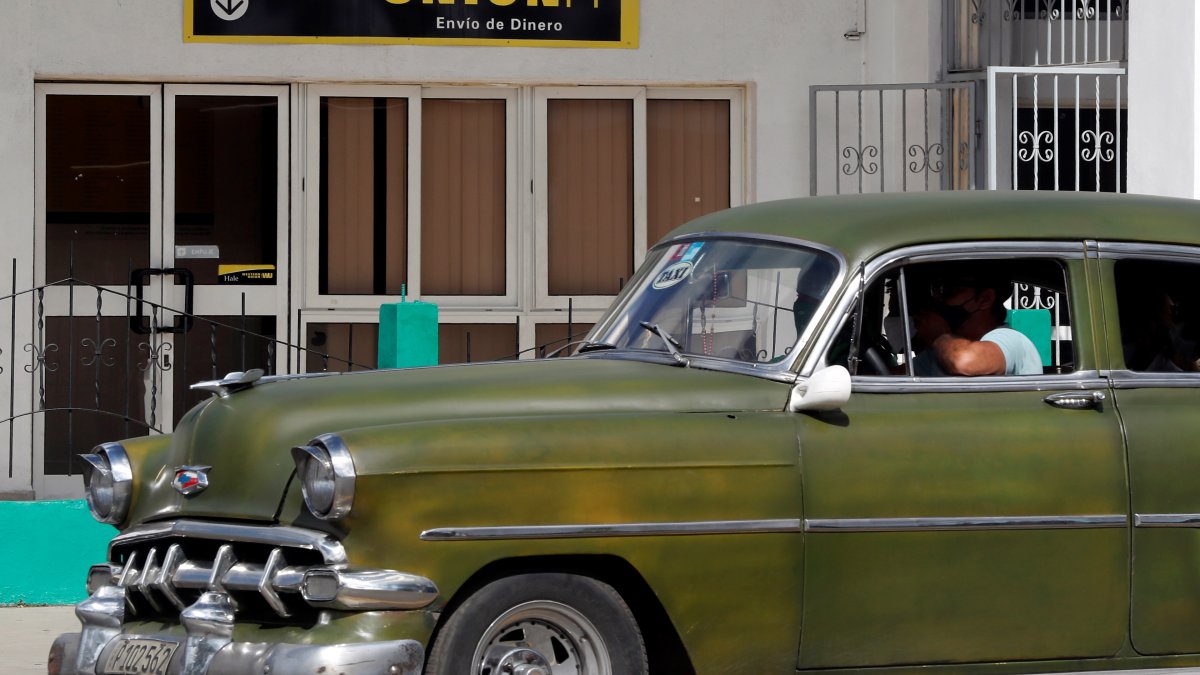Starting this Thursday, Cubans will be able to receive remittances to the island sent from any US state through Western Union, a service that would have been closed since November 2020 by decision of the administration of the former president. Donald Trump.
The American company ended the small-scale test phase that began in January, which only allowed dollars to be sent from Florida, where the largest number of Cubans in the United States reside.
As Western Union reported in a press release, the money can be sent through any of the company’s 4,400 offices in the United States and will have a daily limit of $2,000.
At the same time, it can be sent through the Western Union website or from the mobile application.
In addition, the dollars sent will be equivalent to the value of the MLC, a virtual currency that operates in Cuba and that takes the US dollar as a benchmark.
The official exchange rate to the dollar is around 120 Cuban pesos (CUP) to the dollar, while in the unofficial market the exchange rate is around 180 Cuban pesos to the dollar.
The management of these Western Union remittances on the island will be in charge of Orbit SA, a company whose administration is unknown and about which there is no official information, beyond the fact that it has was created in February 2020 and that year received authorization from the Central Bank to manage remittances.
“Orbit SA, which in 2022 handled remittances to the country from Europe and Canada, will expand its remittance operations to Cuba from the United States. It is a legitimate activity that has been operating in Cuba since 1995 in accordance with international standards and which since 2020 has been stopped for the American market by unilateral decision of the government of this country,” the company reported.
Orbit SA added that the money can be received directly into the Cuban currency accounts of Banco Popular de Ahorro, Banco Metropolitano SA and Banco de Crédito y Comercio.
You can send up to $2,000 per transaction by presenting a valid ID, shipments will be in US dollars but will be received in freely convertible currency (MLC).
Western Union suspended operations on the island in November 2020 after Donald Trump banned all transactions between the United States and Fincimex, the financial arm of Cimex, a company that is part of the conglomerate Grupo de Administración Empresarial SA (Gaesa) controlled by the military and responsible for Cuba’s main monopolies and economic sectors.
The decision, framed by Trump’s “strong hand” policy against the Cuban government, led to the immediate closure of the US company’s more than 400 offices on the island.
Remittances, which constitute a good part of the income of thousands of families in Cuba, represented 6% of the gross domestic product (GDP) of the island between 2005 and 2020, according to estimates by independent experts.
In 2019 alone, the money received, 90% of which came from the United States, is estimated to have been the second largest source of foreign exchange, only after the export of medical services and well above tourism.
The island is going through a deep economic crisis, aggravated by the pandemic, which is reflected in an increase in the standard of living of the average Cuban, galloping inflation, a partial dollarization of the economy and shortages of basic products, such as food. , fuel , and drugs.

